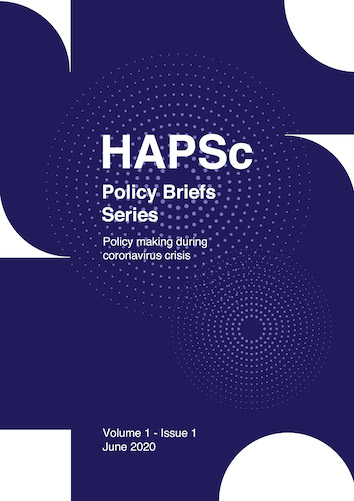Τhe impact of Covid-19 on Better Regulation agenda
Abstract
The outbreak of the Covid-19 has had a negative impact on Governance systems. According to the recent literature, the pandemic should be understood as one more step towards Autocracy. Governance systems have reacted to the coronavirus pandemic through a series of decisions, which suffer both in terms of their issuing significant faults as far as it concerns both their process of issuing and their content. The vast majority of the commented decisions are violating the legality principle and have been issued on a “state of emergency” basis.
In fact, what has been happening during the pandemic, is a systematic cancellation of the Better Regulation Agenda. Recent surveys have shown that the poorest the quality of Governance, the heaviest (negative) impact of the coronavirus on regulatory policies. In Greece there was an intensification of corporatistic regulation and decisions during the crisis. Covid-19 has functioned as an alibi: Many agencies and public organizations followed an extralegal procedure, when it came to the recruitment of personnel as well as public procurement. What does change during a crisis like the pandemic, is the people’s attitude towards government, which offers an opportunity to push some reforms forward. But as long as the governance system remains unchanged those reforms are bound to fade out soon after the crisis is over.
Article Details
- How to Cite
-
Karkatsoulis, P. (2020). Τhe impact of Covid-19 on Better Regulation agenda. HAPSc Policy Briefs Series, 1(1), 100–106. https://doi.org/10.12681/hapscpbs.24954
- Section
- Articles

This work is licensed under a Creative Commons Attribution 4.0 International License.
Authors retain copyright and grant the journal right of first publication with the work simultaneously licensed under a Creative Commons Attribution License that allows others to share the work with an acknowledgement of the work's authorship and initial publication in this journal.


